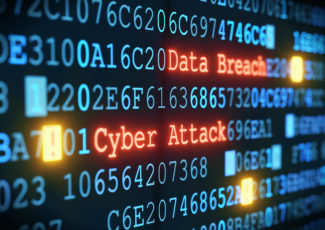Cybersecurity Program Earns Federal Recognition
By Dennis Pierce
July 16, 2015
Degree programs at Estrella Mountain Community College, in Arizona, position students for a career or a four-year college.
Estrella Mountain Community College (EMCC) has become the first two-year college in Arizona — and one of only about 30 community colleges in the nation — to be recognized by the National Security Agency and the Department of Homeland Security, for its cyberdefense education program. It’s a designation that will give students a leg up as they move on to a four-year college or a career.
EMCC, a member of the 10-school Maricopa County Community College District, has been designated as a National Centers of Academic Excellence (CAE) in Information Assurance/Cyber Defense for Two-Year Education.
The college, which serves 5,700 full-time students and nearly 15,000 total students each year, more than half of whom are Hispanic, offers an associate of applied science degree in cybersecurity, with four possible tracks: Information Technology and Power Systems Security (IT-PSS), Network Security, Systems Security-Linux, and Systems Security-Microsoft.
Students in the program are introduced to all four areas of study and then choose a focus, says faculty member Larry Heinz. Depending on students’ ambition, they have an opportunity to leave the program with multiple industry certifications in addition to an associate degree.
“We try to give them the most bang for their buck,” says Heinz, who is director of EMCC’s Networking Technologies Institute.
Getting a job after the cybersecurity program
While most students go on to receive a four-year degree at another institution, the job prospects for students with an associate degree in cybersecurity are promising. Heinz says the Arizona Department of Revenue hired one recent graduate, and American Express hired another graduate to work on problem resolution for its vendors.
“We’re 200,000 people short of jobs” in the cybersecurity industry, Heinz noted, and this figure is growing.
The IT-PSS track prepares students to work in the energy industry, securing and troubleshooting the relays and valves that turn power-plant systems on and off. It’s an area of critical need, says Heinz, as many of the workers in this field near retirement.
The program’s history and its future
The program was created in 2012 with support from a federal Trade Adjustment Assistance Community College and Career Training grant to develop workforce training and degree programs in the energy industry. EMCC is the lead partner in the Arizona Sun Corridor-Get Into Energy Consortium, the five-school consortium that received the grant.
To help fill the energy-security pipeline, EMCC also partners with local high schools. For instance, students from the Peoria Unified School District can earn both high school and college credit by taking classes in the program, “so they can go from high school to our program and be one step ahead,” Heinz says.
Earning National CAE status gives the program a huge boost and will help open doors for the students who complete it, Heinz says. NSA and Homeland Security often hold closed job fairs for students attending schools with this designation, and students will have an easier time transferring to a four-year program with CAE status as well.
“Our students are going to have more opportunities than they ever dreamed of,” Heinz says.
He described the application process as “tedious, painful [and] time-consuming” but said the result was worth it.
“Be patient,” he advises others who are considering the process. “Map your program to the NIST [National Institute of Standards and Technology] standards, and identify your strengths and gaps. Fill these gaps before you apply.”







